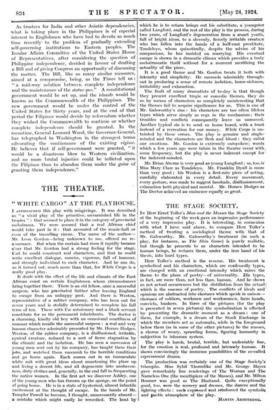As trustees for India and other Asiatic dependencies, what is
taking place in the Philippines is of especial interest to Englishmen who have had to devote so much time recently to the problem of gradually extending self-governing institutions to Eastern peoples. The Insular Affairs Committee of the United States House of Representatives, after considering the question of Philippine independence, decided in favour of drafting a Bill and of giving Congress an opportunity of discussing the matter. The Bill, like so many similar measures, aimed at a compromise, being, as the Times tell us : "a mid-way solution between complete independence and the maintenance of the status quo." A constitutional government would be set up, and the islands would be known as the Commonwealth of the Philippines. The new government would be under the control of the United States for thirty years, and at the end of that period the Filipinos would decide by referendum whether they wished the Commonwealth to continue or whether complete independence should be granted. In the meantime, General Leonard Wood, the Governor-General, has telegraphed to Washington in the strongest terms advocating the continuance of the existing regime. He believes that if self-government were granted, "it would be a disastrous blow to Western civilization, and no more brutal injustice could be inflicted upon the Filipinos than to abandon them under the guise of granting them independence.",










































 Previous page
Previous page